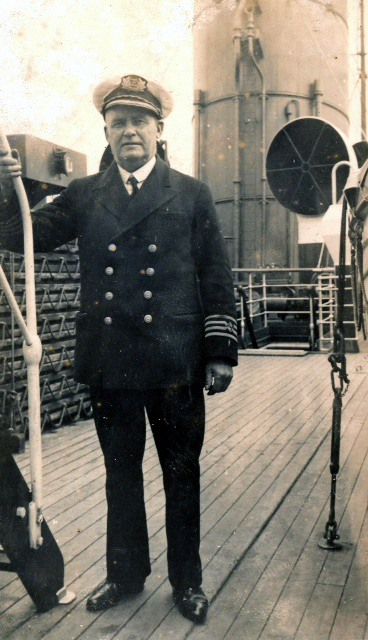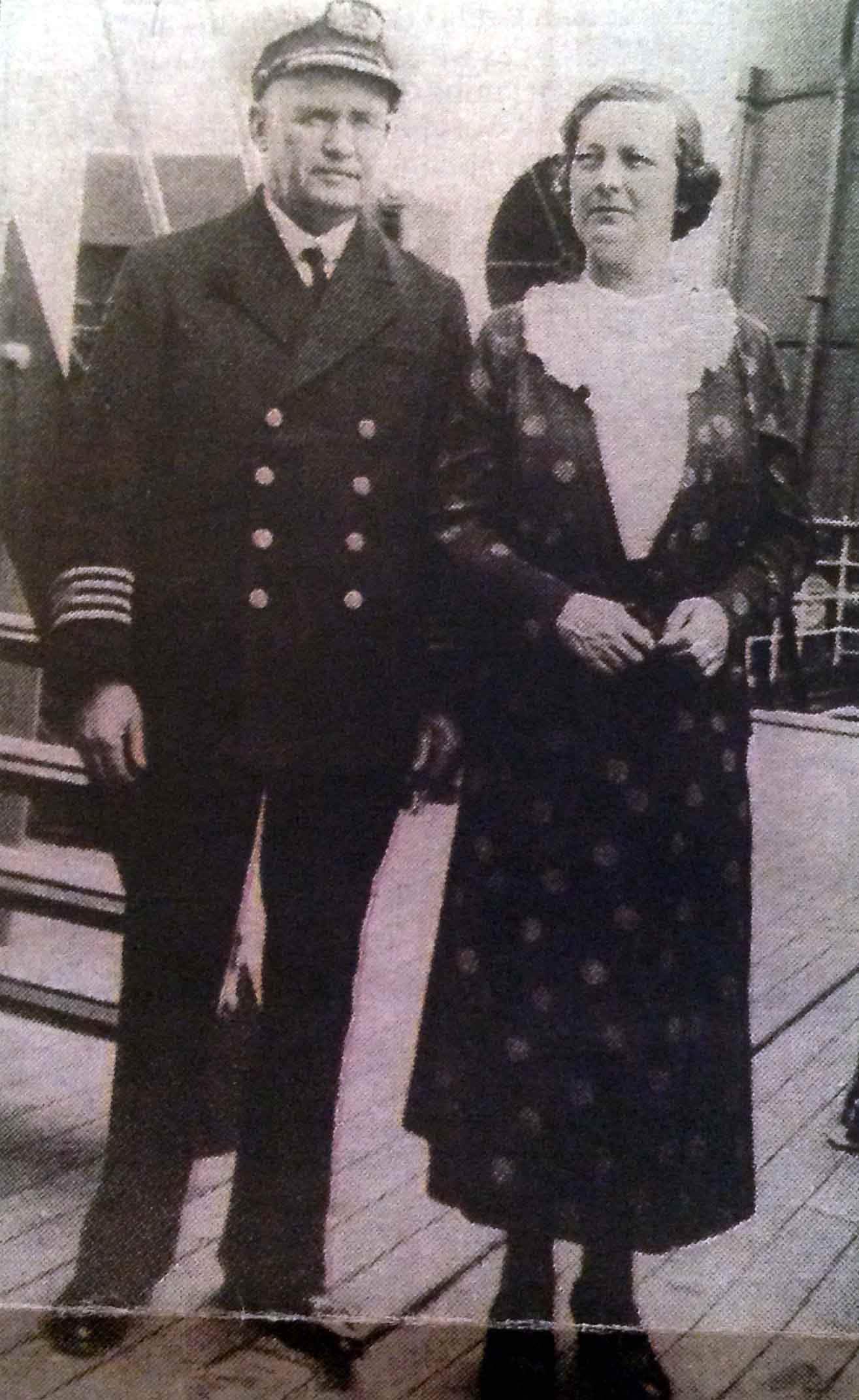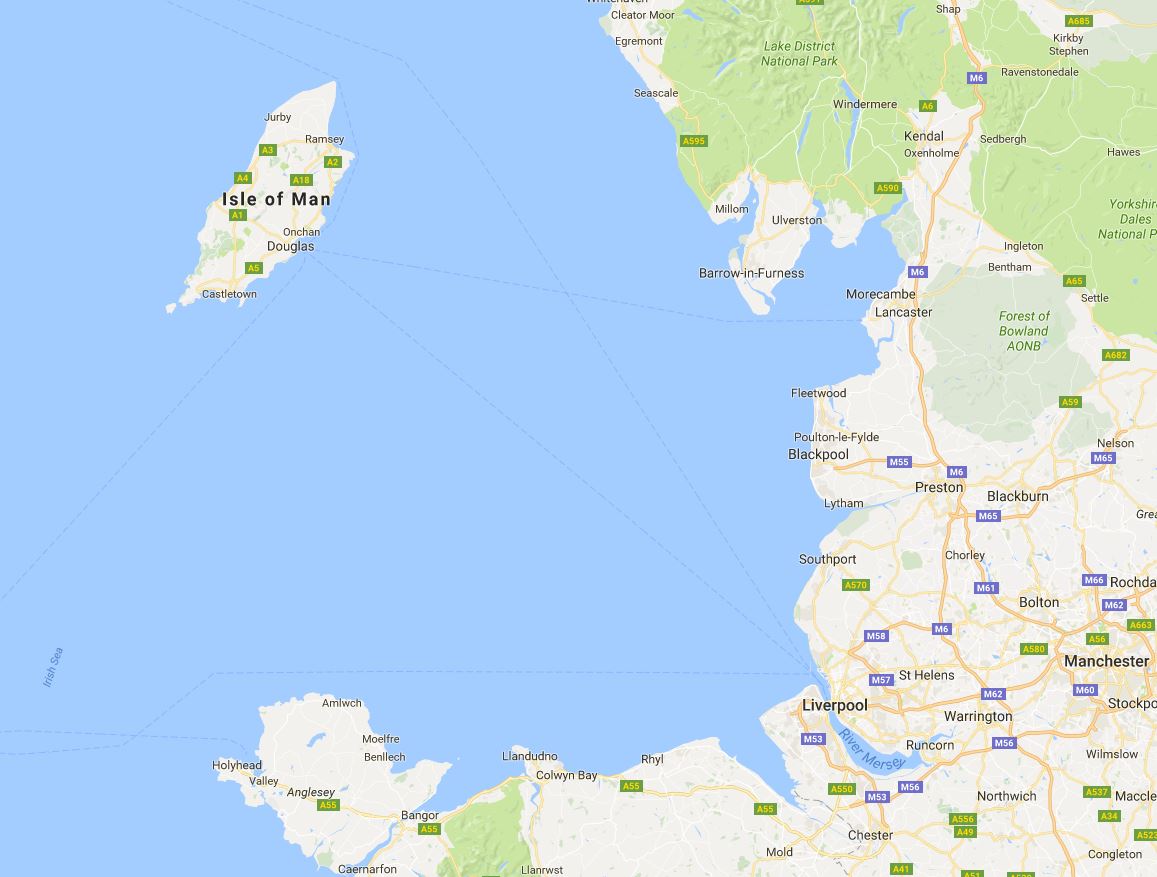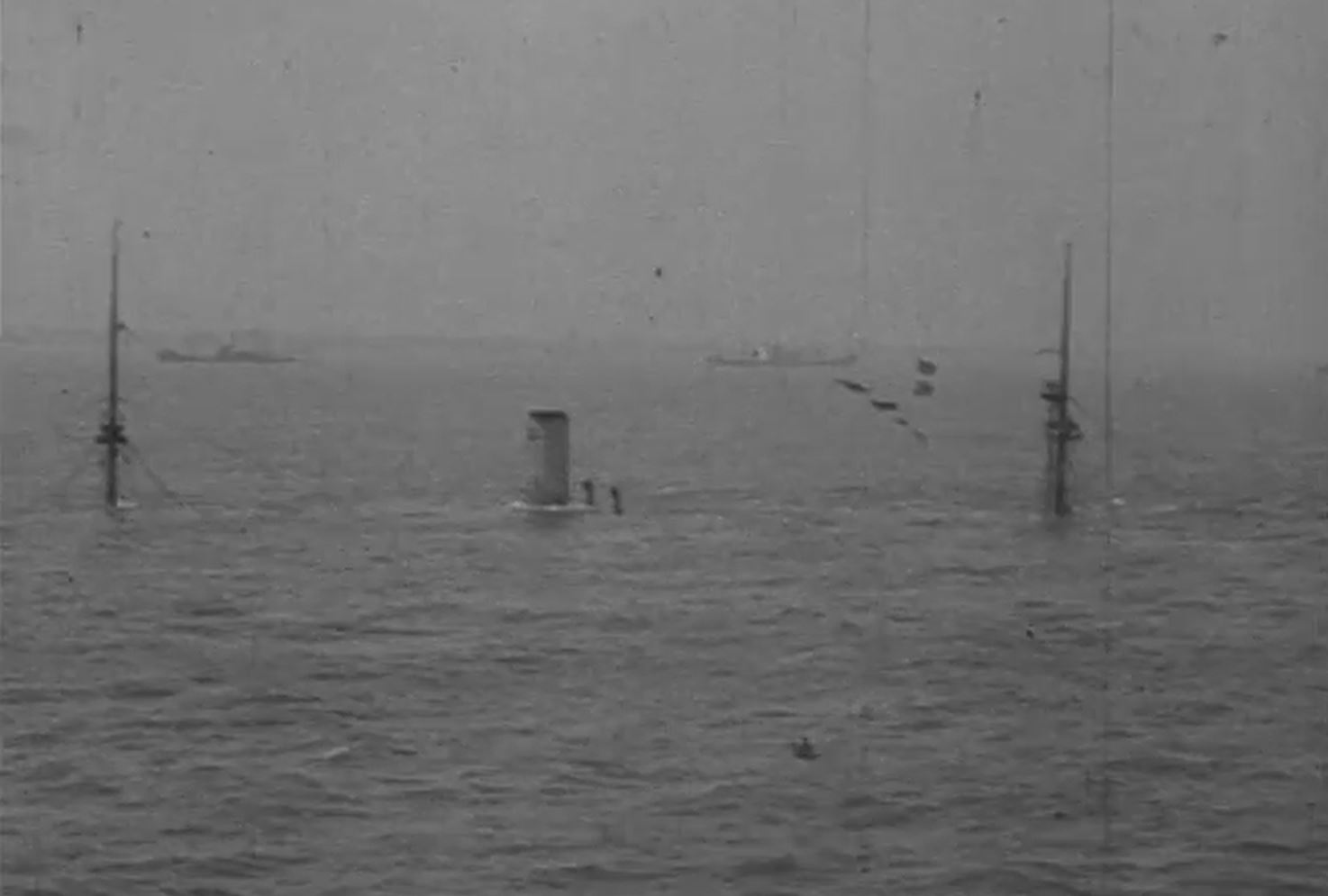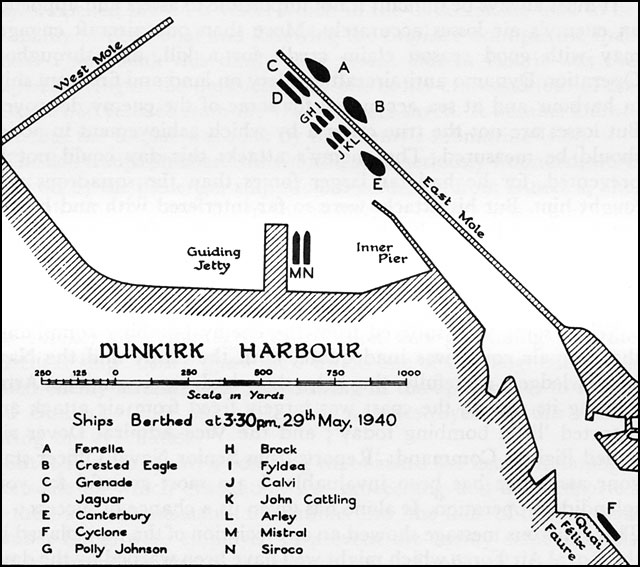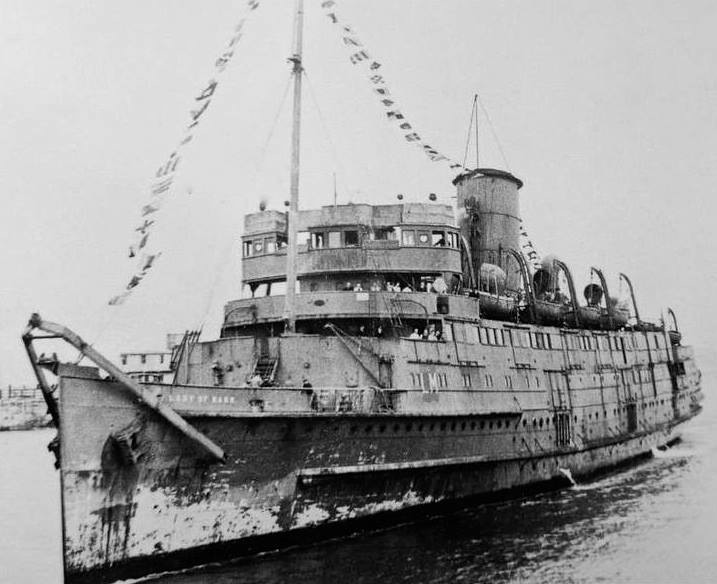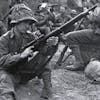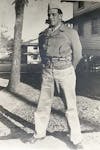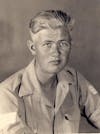10 Dunkirk ship diaries of Capt Tom Woods OBE, WW2
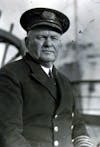
A dramatic blow by blow account of five deadly days in Dunkirk!
The personal WWII diary and letters home from Capt Wood of the Lady of Mann offer a unique glimpse into the happenings of the Dunkirk evacuation during WW2 in 1940
Bill Cheall was plucked off the Dunkirk beaches by the ship Lady of Mann, which had an heroic part to play at Dunkirk
The ship was captained by civilian seaman, Tom Woods, who would later be honoured with an OBE for his gallant efforts.
Hear about the murderous threat of the German forces
Learn about a mutiny on the big ships!
A dramatic blow by blow account of five deadly days in Dunkirk!
The second in a special Dunkirk series. Recommended that you also listen to Podcast Episode 9 in this series - Major Petch's Dunkirk diary, WWII.
YouTube channel - Loads of my own videos - Dunkirk Mole, Gold Beach, more ...
Feedback/reviews in Apple Podcasts - Thank you.

The Lady of Mann moored up at Brest where she carried out further evacuations following Dunkirk

Best podcast for World War 2 history and the second world war
Interested in Bill Cheall's book? Link here for more information.
Fighting Through from Dunkirk to Hamburg, hardback, paperback and Kindle etc.
The personal diary and letters home from Capt Woods of the Lady of Mann offer a unique glimpse into the happenings of the Dunkirk evacuation during WW2 in 1940.
Bill Cheall was plucked off the Dunkirk beaches by the ship Lady of Mann, which had an heroic part to play at Dunkirk.
The ship was captained by civilian seaman, Tom Woods, who would later be honoured with an OBE for his gallant efforts.
Hear about the murderous threat of the German forces. Learn about a mutiny on the big ships!
Captain Woods, C 1940
"German planes were coming over, their bombs dropping the other side of the pier about 40 yards from us and we had seven holes made in the starboard bow close to the water line, also three lifeboats holed by flying shrapnel from the shells."
Captain Woods with wife, Floss
Isle of Man and Barrow, Google Map
"It was a ship's graveyard", Bill Cheall, 30 May 1940. Pic from Manchester Univ archives
Map of Dunkirk Harbour and the Moles (Protective piers) WW2
Lady of Mann just after WWII service, looking a sorry sight.
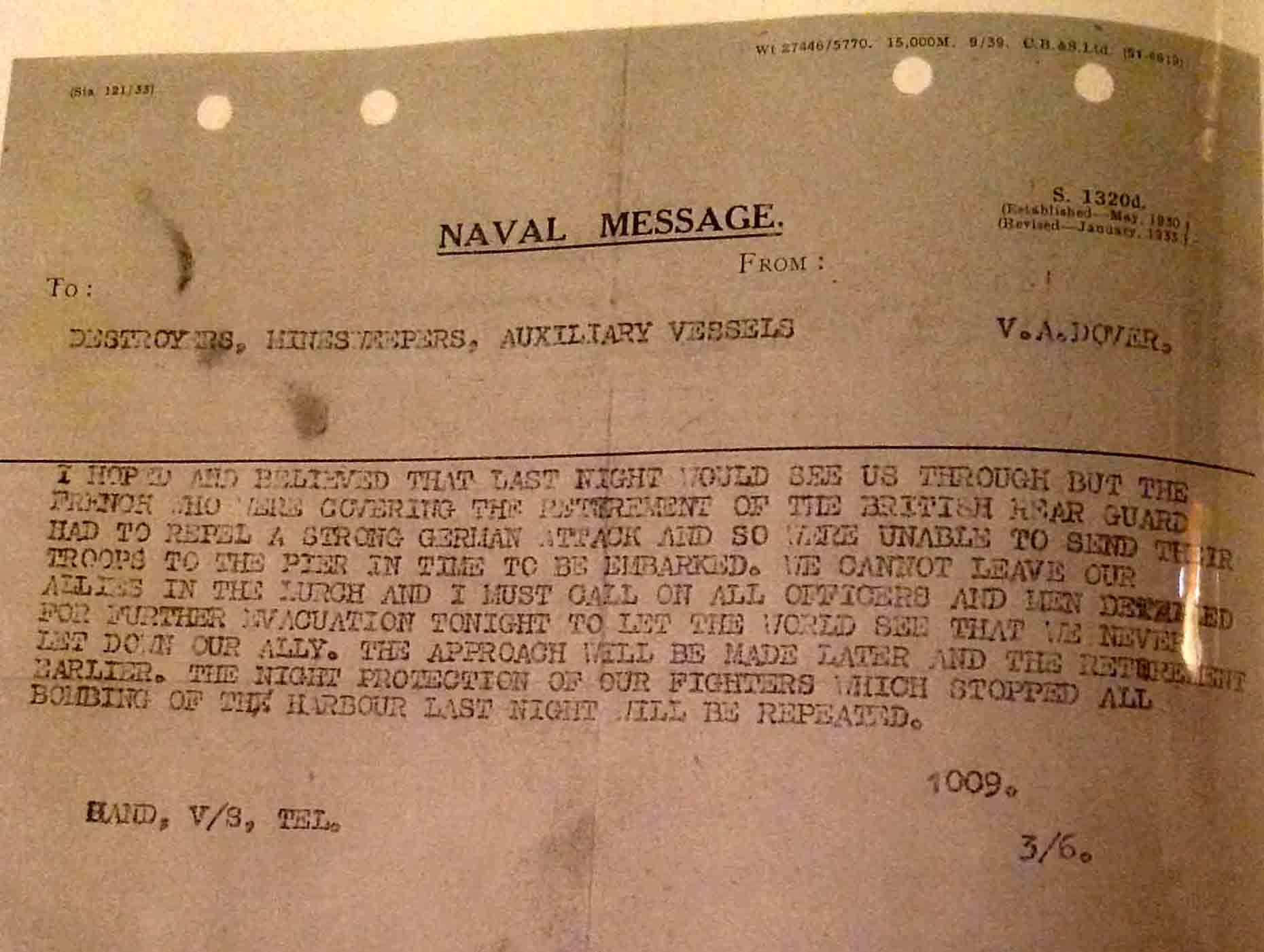
Orders to return for one more rescue mission to help save 26,000 French allies who had been guarding the rear:
NAVAL MESSAGE
FROM VA DOVER, 3 June
TO: DESTROYERS, MINESWEEPERS, AUXILLARY VESSELS
I hoped and believed that last night would see us through but the French who were covering the retirement of the British rear guard had to repel a strong German attack and so were unable to send their troops to the pier in time to be embarked.
We cannot leave our allies in the lurch and I call upon all officers and men detained for further evacuation tonight to let the world see that we never let down our Ally. The approach will be made later and the retirement earlier. The night protection of our fighters which stopped all bombing of the harbour last night will be repeated.
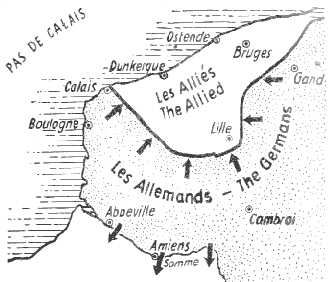
FTFDTH podcast 10 - The Dunkirk Letters of Capt Tom Woods OBE
Great unpublished history!
"I have nothing to offer but blood, toil, tears and sweat. We have before us an ordeal of the most grievous kind. We have before us many, many long months of struggle and of suffering. You ask, what is our policy? I will say: It is to wage war, by sea, land, and air, with all our might and with all the strength that God can give us; to wage war against a monstrous tyranny never surpassed in the dark and lamentable catalogue of human crime. That is our policy. You ask, what is our aim? I can answer in one word: Victory, victory at all costs, victory in spite of all terror, victory, however long and hard the road may be. For without victory, there is no survival"
Winston Churchill 13 May 1940
The ww2 Dunkirk evacuation, code-named Operation Dynamo was the dramatic escape of Allied soldiers from France during World War 2.
---------------------------
“We must go back again. Every one of those men in the water is somebody's son”
Captain Tom Woods OBE, Dunkirk 1940
German planes were coming over, their bombs dropping the other side of the pier about 40 yards from us and we had seven holes made in the starboard bow close to the water line, also three lifeboats holed by flying shrapnel from the shells. Captain Tom Woods
------------------------
The ship was a ferry ship called The Lady of Mann (how could I forget that name?). How lucky we considered ourselves to be; out of all those thousands of men, we were being given the opportunity to be evacuated." Bill Cheall, 6 GH.
Hello again
I’m Paul Cheall, son of Bill Cheall whose WW2 memoirs have been published by Pen and Sword – in FTFDTH.
The aim of these ww2 podcasts is to give you the stories behind the story – memoirs and reminiscences of veterans connected to Dad’s war in some way.
This episode opened with part of the inspirational speech which Churchill made to Parliament on 13 May 1940.
This was soon after he had formed a government to lead the country during the war. And shortly after the German invasion of France on 10 May.
His speech must surely have helped to set the mood of the country and forge what became known as the Dunkirk spirit, when everyone pulled together to do what needed to be done to save our troops stranded in France.
Since Dad’s book was published I feel very very lucky to have uncovered a variety of memoirs and letters from people connected to Dad’s story. And the small fragment of history in Dad’s memoirs is now like some great big jig-saw gradually unfolding before me as more and more accounts appear. So I’m quite staggered about it all really and so chuffed that I can share it with other people.
My Dad was plucked off the ww2 Dunkirk beaches by the ship Lady of Mann, which had an heroic part to play at Dunkirk. The ship was captained by civilian seaman, Tom Woods, who would later be honoured with an OBE for his gallant efforts.
This podcast episode features the Dunkirk letters and memoirs of Master Captain Tom C (Daddy) Woods OBE. His great grand-daughter, Sarah, stumbled across my web site a while ago and has kindly sent me the fantastic family records handed down by Tom from 1940.
The material includes a report he wrote after the events took place and letters home to his wife, which illustrate not only the deadly threat of the German forces but also a mutiny by some of the Lady of Mann’s crew.
And I’ll tell you this – if this podcast affects you the same way as it affected me, you’ll have a lump in your throat more than once.
---------------------------------------
Captain Tom Woods was not a young man in 1940; he was in his sixties and almost about to retire when the war broke out and his ship, the Lady of Mann, was requisitioned.
The Lady of Mann was a passenger ship, built by Vickers Shipbuilders for the Isle of Man Steam Packet Company at Barrow-in-Furness in 1930, at a cost of some £249,000. She operated on the Island's busy routes between Douglas and the UK mainland. She had a maximum speed of 23 knots (26 mph)
The Steam Packet company owned several sister ships and a number of these were used in the Dunkirk evacuation (in fact 8 in all). But this is the story of just one of them …..
So, here’s the scene – it’s 31 May 1940. If you listened to my previous podcast, you’ll know that since 10 May Major Petch and his boys have been fighting their way to Bray Dunes and walked the five miles on soft sand to Dunkirk.
We’ve got literally hundreds of thousands of hungry and exhausted French, British and Belgian soldiers stranded, slowly being surrounded by the advancing German forces.
From the 10th May, there has been much fighting, not all in Germany’s favour, but still causing a withdrawal by the allies back to England. The official evacuation started on 26 May, only 16 days after the German invasion.
There’ve already been a lot of embarkations from the port of Dunkirk itself, and from the harbour's protective East pier, known as the East Mole. Also there are many small boats which have come over from England to lift troops directly from the beaches and ferry them to larger ships - sometimes sailing straight back across the channel to England!
And all this time there are German planes bombing and machine gunning the ships and beaches. Ww2 podcast.
My Dad describes the scene in his memoirs:
“We could see ships out at sea making their way from Dunkirk to England and could also see the dive-bombers after the ships. To our horror, many other ships had been sunk, their funnels and superstructures sticking out of the water – it was a ships’ graveyard and it looked dreadful.
Eventually, our column reached the East Mole and we waited in a long queue until it was possible for us to board a ship. Really, it is almost unbelievable, but even when we were attacked by planes we didn’t move in case we lost our place in the column. The Mole was a wooden jetty only about five feet wide and one thousand four hundred yards long.
Listeners, the two concrete moles protecting the outer harbour at Dunkirk played a significant part in the evacuation of troops in May 1940. The harbour had been made unusable by German bombing and it was clear that troops weren’t going to be taken directly off the beaches fast enough.
Naval captain W. G. Tennant had been placed ashore to take charge of the navy shore parties and organise the evacuation. Tennant had what proved to be the highly successful idea of using the East Mole to take off troops. The moles had never been designed to dock ships, but despite this, the majority of troops rescued from Dunkirk were taken off in this way.
…..
(script used for the WW2 Dunkirk podcast on Dunkirk ship Lady of Mann, a WW2 diary podcast)
I’m going to start off with Tom’s report to his management when he got back from Dunkirk because it provides a good backdrop to the letters to his wife which he also wrote when he got back.
Interestingly, the first day the Lady was involved was the very day she rescued my Dad.
Report to
R W Cannell Esq
General Manager
IOM Steam Packet Line
Dear Sir
You asked me to write a short account of our experiences in the Lady of Mann evacuation at the various ports.
Friday 31st May 1940
We arrived at Dunkirk about 11.30am and had to wait outside the pier heads for orders to enter, which we got about noon. All the time we were waiting there were continuous waves of German planes coming over 40 at a time. The anti-aircraft barrage from all the ships about … and our fighter planes going up and intercepting them, kept them from dropping any bombs close to the shipping.
About 1.30 pm we got a birth at the pier and commenced embarking French casualties from the French hospital. We took 1500 casualties on board of which 300 were stretcher cases, also 500 other French troops and 1000 British.
All the time we were at the pier, the German planes were coming over, their bombs dropping the other side of the pier about 40 yards from us and we had seven holes made in the starboard bow close to the water line, also three lifeboats holed by flying shrapnel from the shells, several soldiers marching down were killed about 30 yards ahead of us in the wharf from the shellfire.
All the time [from] entering Dunkirk, for over five hours, we were under bomb and shell attack. We sailed about 5pm for Folkestone, berthing there at midnight … and disembarked all the [uninjured] troops, leaving Folkestone at 4.30am for Dover, arriving about 6am where the casualties were disembarked.
Listeners the bit you’ve just heard related to my Dad’s evacuation. Until I read this I had no idea, and I don’t think Dad had, that the ship had been hit by shrapnel and some soldiers had been killed trying to board the ship.
This is an abridged episode from my Dad’s account of this particular period
“There by the side of the jetty, a ship was waiting to be loaded with human cargo. We walked along the wooden pier and back came the planes – it seemed never-ending – trying to bomb our ship but without success.
We walked along for about a half-mile to the ship we would be boarding. Miraculously, the Mole was still intact, but there was a six-foot gap in the planking where a bomb had gone through without exploding - and loose planks had been put across…. Some lads, in their desperate hurry, chose to jump the gap with their full kit on
------- luckily, none fell through into the water.
Another thirty yards and we came to our ship. At the top end of a gangway stood an officer, counting soldiers as they went aboard.
Dunkirk podcast, ww2
The ship was a ferry ship called The Lady of Mann (how could I forget that name?). How lucky we considered ourselves to be; out of all those thousands of men, we were being given the opportunity to be evacuated.
The ferry was fast becoming packed with grateful lads. The Captain would know how many men the ship could carry, but God alone knows what would have happened had a bomb hit us! I was lucky enough to be on deck to see what was happening and it must have been very claustrophobic down below deck
At last, packed like sardines, the ship started to tremble and, so very slowly, we pulled away from the Mole – it was 6pm, 31 May 1940.
Being a little taller than many of the lads enabled me to have a panoramic view of the whole length of the beach. I wondered how many of those boys would get back to England and how many would be killed or taken prisoner?
The beach was as crowded as ever; then suddenly I saw a German fighter plane skimming above them, firing cannons – it reminded me of a row of dominoes being knocked down from one end.
The dense black smoke from the blazing oil storage tanks reached far into the sky. There was another loaded ship about one mile ahead of us, and suddenly I heard the Stukas returning, diving almost vertically.
I saw bombs leaving one of the planes and was certain our time had come, and that this was the end. I closed my eyes and gritted my teeth, my whole body braced for the inevitable impact. Then, ‘Sploosh!’ and nothing else. I looked out in surprised relief to find that, miraculously, the bombs had hit the sea about twenty yards away, so God was watching over us. Then we all gave a massive cheer when
one of our destroyers hit one of the planes, knocking a wing off with the inevitable result.
Pause, quiet …
As we drew away from the coast on 31 May 1940, I wondered how many of the soldiers left on the beach would get away. That night and all I saw will always be imprinted upon my memory.
After another mile or so we felt safer; we were going to be lucky. Everybody became so quiet that only the passage of the ship could be heard, and that noise was bliss to our ears. I don’t believe that anybody who had endured the past weeks, witnessed such tragic events and lived to remember it all could be anything but thankful – there must be a God above looking after us.
Early morning, after it had become light, somebody shouted, ‘Hey, look across there!’ We saw the White Cliffs of Dover, and it was a beautiful sight. In a little while, the ship slowed down and soon edged its way to the dockside at Folkestone.
There was a tremendous welcome from everybody awaiting our arrival. Those good Samaritans of The Salvation Army and of the Women’s Voluntary Service made us most welcome and plied us with sandwiches and mugs of good strong tea, and before we had time to gather our wits we were boarding trains. ……………………………………..
Listeners, of course that was it for my Dad but for Captain Woods it was simply time to return to Dunkirk!! Ww2.
Back to the Captain’s report …
Saturday 1 June
Left Dover Saturday evening for Dunkirk, arrived off the port about 11pm and got orders from two destroyers to wait orders and as no orders came by 3am on Sunday morning, we left for Dover, following strict instructions from the Admiralty. [waited 4 hours]
Listeners, this is the order which Capt Woods received telling him to leave Dunkirk harbour
FROM Vice Admiralty [DOVER]
TO: ALL Sea Transport Officers affected
Any Ministry of Shipping ship outside Dunkirk harbour is to leave Dunkirk at 0300 2nd June.
Any ship inside Dunkirk harbour is to cast off and proceed to UK at 0300 2nd June.
Whatever orders to the contrary are given by Officers on the spot.
These orders must be incorporated in any Sailing Orders given.
SEA TRANSPORT OFFICER, DOVER, 1 JUNE 1940"
So Listeners, this means that the Lady of Mann actually left Dunkirk without any passengers on board – what was that all about???!!! Anyway the next evening they turned back again and headed for Dunkirk.
Sunday 2 June
Left Dover 8.30pm, arrived off Dunkirk pier heads at 11.45pm, instructed by Admiral in charge to wait off pier heads as there was no room inside. Stood by within two miles distance until 2am, when Admiral ordered me to leave for Dover, as time would not allow to go inside the harbour. We had a few French soldiers that came off in boats. [waited 2 hours]
Big pause
So Listeners
Am I reading that properly? Does that mean they have just actually gone out a second time and returned twice without bringing anyone back?! Apart from the few French soldiers Tom mentioned. Gosh that is quite surprising. I wonder if Churchill knew what was going on there?
Monday 3 June - 4 June
Left Dover 6.30pm [3 June], arrived at Dunkirk 10.15pm, went inside piers, could not get a berth or anyone to take ropes, kept manoeuvring inside the harbour until 12.30am [4th June] when we got made fast, embarked about 2000 troops and had to leave at 1.45am as water was ebbing and I was afraid ship would ground. Had intermittent dense fog on the passage back, arriving at Dover about 6am. Disembarked troops.
Listeners, following is the order which Capt W received regarding this action ….
NAVAL MESSAGE
FROM VA DOVER, 3 june
TO: DESTROYERS, MINESWEEPERS, AUXILLARY VESSELS
I hoped and believed that last night would see us through but the French who were covering the retirement of the British rear guard had to repel a strong German attack and so were unable to send their troops to the pier in time to be embarked.
We cannot leave our allies in the lurch and I call upon all officers and men [who are] detained for further evacuation tonight to let the world see that we never let down our Ally. The approach will be made later and the retirement earlier. The night protection of our fighters which stopped all bombing of the harbour last night will be repeated.
Listeners, the ww2 action started for The Lady of Mann on 31 May and carried on through to 4 June. Immediately after this Dunkirk was captured by the Germans and all evacuation activity ceased, and those troops who had been fighting a rear guard action were captured and taken prisoner for the rest of the war.
BIG PAUSE
Well, listeners, that’s the end of Tom’s report. Fascinating it was too. I think one or two questions are going begging here but I’m not going to debate stuff now because I don’t want to lose the momentum of the story.
Podcast ww2
I’m now going to turn to Tom’s letters home. He wrote these after he got back to England but not yet got home to his wife.
Tuesday 4 June, Dover
My Dear Floss
A few lines and even though it is in pencil you will be pleased to see my writing again.
We’ve had a hectic time since 28 May. All the sleep I have had is about 2 hours a day and I feel jiggered so won’t be able to give you any particulars of the time we’ve had but thank the good man we have come out of it, not unscratched.
The sights we have seen would make one cry and others - thank goodness that we belong to such a nation of men…………
So some time when we meet again in the near future I will have some tales to tell. You will have to forgive me this short letter but we are sailing at 8pm for Plymouth and I hope we get a good rest when we get there.
I was pleased to read today in the Ramsay Courier that Tommy was saved. Although I have seen the ship so often this last few days, I could not find out who was saved or who was not - but it’s sad.
Now, Dear, I will leave you all good evening and thank God for a safe deliverance. Love to all and heaps of love and kisses for yourself from your loving Tom
Thursday 6 June, Plymouth Sound
My Dear Floss
I have now settled down and am able to take up the pen to write to you. I am glad Capt Kinly called to see you on Monday to assure you I was well. When I was speaking to him I was well, but a little bit nervy, as I was just going to go out on the stunt that has [just] made a night in the history of the British Empire and I did not want to be out of it. Now it’s over I would not have missed it for the world.
We saved 1500 lives the night of 3 June, something to be proud of and never had such a night in my life. Ships and boats all around us and a strong breeze and strong tide - [such] that my engines’ telegraphs never stopped for 3 hours before we could get alongside. (Listeners the telegraphs mentioned are communications between the Captain and the engine room)
If I could have got someone to take only one rope off us when we arrived I would have had 5000 but I was sorry I had to leave when I did. If I didn't we would have grounded and I did not want to leave the Lady's bones there. However, Dear, we were 4 hours in the thick of it that night and came out unscathed - Thank God.
The rest of the tale I will keep till we are lying in bed some night and you make me talkative.
I don't know how all them that went home will ever hold their heads up again. They just jumped on shore and left everything behind just as if a bomb had dropped on their ships. Maybe you can tell me how they are taking it on the Island.
I am ashamed to hold my head up amongst strangers when I think of it and the more I think the worse it looks. When I spoke to Capt Kinly that morning I thought he knew all about it but he didn't - it was me that gave him the information.
Listeners this was early 3 June after the second aborted sailing. Ww2 podcast
Well, Dear, my Head and Heart stood the great strain. In fact, when we were in the thick of it I had no time to be nervous and maybe that is what saved the situation (but I don't think) my head has been so well as it is now for years.
On Monday when we left Dunkirk it lifted a cloud off my mind and I have not had a nervous minute until I got back. All Tuesday and Tuesday night I seemed to want to cry but thank goodness after a good sleep that has gone and I’m as fit as a fiddle now.
Well love I will leave you now and see what tomorrow brings forth as we are only living from day to day now.
Give my love to all, Dear, and heaps of love and kisses for yourself from your loving Tom.
Listeners, in the past there has been speculation and rumour about the 'mutiny' aboard ship, and the Captain’s letter is pretty conclusive evidence that some civilian sailors did leave the ship. Records suggest 17 sailors left the Lady at this time. The Captain’s letter referred to crew leaving ships plural so I don’t think it was just the Lady of Mann involved here.
Sara’s commented, "There is rumour in the family that Tom faced a mutiny at one point with some crew refusing to go on. I think this might be what he is referring to in one of the letters. I make no judgment on anyone not wanting to continue though. These men were civilians and the whole experience must have been harrowing.
Tom had 3 sons of his own in their 20s at the time and it is said that he insisted on going back because, he said, 'every one of the men in the water was somebody's son'."
Two journeys had to be aborted because they couldn’t moor up and returned almost empty-handed.
Listeners, I’ve seen an article by Bernard Moffat in the Celtic History & Literature Review about Dunkirk, and this discusses the mutiny situation in some detail. He makes various points …
He says that Admiral Ramsey’s own papers state that armed naval ratings with fixed bayonets had to be deployed on some of the ferries to stiffen the resolve of some crews.
The actions of the men on the ships is also indicative of a lack of confidence in the conduct of the operation rather than indicative of the men's cowardice.
The Manx and Welsh ferries were in the area from the outset, without any on-board protection save for the odd light machine gun. They were hopelessly ill-equipped to withstand air attack.
They were on the receiving end as [men in charge] Ramsey and Dowding debated the strength of air cover and ships were temporarily moved in and out of position.
Three Manx vessels were sunk during the evacuation - the King Orry, Fenelia and Mona's Queen.
The steamers stayed until the last minute, cutting it so fine that the last ships left as the Germans occupied the port.” Ww2
Moffat concludes that these were not men whose nerves snapped or whose courage evaporated.
These were men at the end of their patience.
Listeners, I think we’ve heard the final word in that comment, other than to add that maybe we should not be too critical of the organisation of the evacuation because it must have been a mammoth task and was never going to run perfectly. Remember that there were some 800 assorted ships and boats involved in this exercise and it can’t have been easy to coordinate everything.
So I’ll simply move on now
Thursday Evening 6 June, Southampton, England
My Dear Floss
A few lines hoping to find you all well, as this leaves me at present, although about dead beat. I feel nearly done up, but if I get a good night’s rest tonight as I expect to, I hope to be all right in the morning again.
From midnight on Sunday 2 June I had not one hour’s sleep for 3 days, and it’s that that tells at my age. We have been through a heavy time Dear, Tuesday [4 June] is a day I will ever remember. Someday, I hope to be able to tell you all about it. I am pleased everyone on board stood the strain fairly well.
I am living in hope that it’s all over for the time now. I would not be surprised [if] we will be going further west soon. 1 was speaking to the Manager and Capt Kinly on the phone today and asked them when it was convenient for them to give me a holiday as I want to get away from it for a few days.
I cannot send for you to come here as we might not be here when you would arrive and you could not find out where we were as I cannot find out where the boats of our company are if they are not here and me seeing them.
Well, Dear, we are having fine weather and if it was not for this trouble I would be in Barrow now to take this ship out for the summer. I will leave you good evening and hope you are keeping your heart up for the Lord is looking after your old man.
Give my love to all and heaps of love and kisses for yourself from your loving Tom
(Dunkirk ship Lady of Mann - script used for the WW2 Dunkirk podcast, a WW2 diary podcast)
7 June l940, Friday evening, Plymouth Sound, England
My Dear Floss
I received your Sunday's letter today and was pleased to get it and to hear you had enjoyed yourself so well and had such a nice run out with Sandy and Mrs but if you had known the trek your hubby was on just at that time I think you would have been very quiet.
We had expected that night to be the last of the evacuation, had had a lively time of it, but to our dismay when we got back on Monday morning [3 June] we were appealed to, to go again, as there were so many French soldiers left behind that had been fighting the rear guard action while the British were embarking. So the call did not come in vain, Dear. We went.
You say that on Friday the clerk from the office told you we were alive and well and that relieved you, but we were in the thick of it that day. Bombs and gunshot falling all around us and air battles above us and we have the credit of fetching down one enemy plane and that day I evacuated 1500 wounded French soldiers and 1000 others. So you see, Dear, we had the pleasure of doing our bit and you imagining we were comfortable.
Well Dear, I suppose you will get the lot of it in bits I have had a busy day today in the heat. I went on shore at noon and had a lot of running about to do and at 3 o'clock Capt Cowley and I had to appear before the Commander in Chief of this place (some nut) and he wanted to know all about the happenings at Dunkirk.
Anyway Dear, I have relieved my mind of some things.
I got your Examiner, too, and was glad as I could see who we saved out of the [small] boats. I couldn’t get to know anything about them here although I was seeing two of them every time I went in [to the port].
From your loving
Tom
PS Capt Taylor told me yesterday he met Tommy coming off the boat dressed in soldier’s rig and his blue beret. He would look comical but I am sorry he got a wiff of gas.
Listeners, I’ve left this PS in the podcast because of the interesting mention of gas. But I can’t actually find any historical references to the use of gas by the Germans at Dunkirk, though Churchill was evidently ready to use mustard gas on the British beaches should the Germans have invaded. Anyway, if anyone listening can throw any light on this subject please do get in touch - fightingthrough@yahoo.com
………………..
So, that’s almost the end of Captain Woods and the Lady of Mann. I’ll just round up with a brief summary of their achievements and a few other ww2 facts and figures …
Over the period of the evacuation, the Lady of Mann had lifted more troops to safety than any other vessel. In fact she brought 4,262 men back to the relative safety of Dover and Folkestone.
The 35,000 men who finally surrendered to the Germans after covering the final evacuations were mostly French soldiers. Their resistance allowed the evacuation effort to be extended to 4 June, on which date another 26,000 Frenchmen were brought to England.
The BEF lost 68,000 soldiers during the French campaign and had to abandon nearly all of their tanks, vehicles, and other equipment. Some 800 boats were involved in the Dunkirk rescue, including 39 British destroyers and other large ships. Nearly 270 were sunk in total.
After Dunkirk, Capt Woods and his beloved Lady of Mann went on to other theatres of war, including evacuating troops from Brest and Le Havre and action on D-Day, 6 June 1944.
On D-Day, she was the headquarters ship of the senior officer of the 512th Assault Flotilla, responsible for the landings on Juno beach near Courselles - [So, that would have been Canadians, in the guise of the 3rd Canadian Division].
The Lady of Mann’s career continued for 25 years after the war. She made her final sailing from Liverpool at 09:00hrs on August, 14, 1971.
Listeners, there is actually a pub in Liverpool called the Lady of Mann – look it up if you’re going there and have a drink in Tom’s memory. I’ve never actually been there myself so that is definitely one for my diary. Cheers Tom! Cheers Lady of Mann!
So, what else can we say about Tom? Plenty I think!
Capt Tom Woods was born in Port St Mary, Isle of Man in 1879, lived in Douglas Isle of Man. He was mentioned in Despatches in Aug 1940 and received the OBE.
Tom’s great grand-daughter, Sarah, said " My great grandfather was a modest man and I don't think he ever thought of himself as heroic, he didn't talk about the war much I'm told. He made several trips, saved thousands of lives and we are all very proud of him. I know that the ship was packed well beyond capacity on some trips.
I was only 6 when he died so I wasn't able to get much of a feel for what he was like as a man beyond him being quietly spoken and being sent out into the garden by his wife Floss to smoke his pipe in the depths of winter. It is thanks to Floss that all the documents were so carefully preserved."
"Tom retired after the war aged 66. He vowed to bring the Lady back to the Isle of Man in one piece and that is what he did. He brought the ship back into Douglas on 9 March 1946 and was welcomed by a civic reception and large crowds.
He died of a brain haemorrhage aged 91on 26 October 71, the same year that the ship was scrapped. My aunts say that it was not a coincidence that he died that year as it broke his heart to see the ship go."
……………….
I’ve got one final very historic letter to read to you, Listeners. Sarah was sorting out some old family paperwork when she found it. She’s only just sent it to me, in very timely fashion, and it’s a letter from the government to Tom, shortly after Dunkirk.
Here goes:
To Captain T C Woods
Master, Lady of Mann
17 June 1940
I write on behalf of the government to convey to you and to the members of your ship’s company the gratitude and admiration felt for the help freely given and the courage and endurance displayed by you all in the evacuation from Dunkirk …
This operation, in which the merchant Navy joined as partner of the fighting services, was carried to a successful conclusion in the face of difficulties never before experienced in war. …
I am proud to pay tribute to your share and that of your ship’s company in a great and human adventure destined to occupy a place of honour in the pages of history.
Ronald Cross
Minister of Shipping
Well, I’m not sure what else I can say to that other than what a marvellous and fitting tribute to the services rendered by Tom and his crew … and there the history ends. …
I really hope you enjoyed this podcast as much as I did. It’s been fascinating to read Dad and Major Petch’s accounts together with Tom's and it certainly makes me realise how hard the Germans were trying to kill the allies. And Dad was obviously one of the 1000 British troops that Tom mentioned lifting off on 31 May - how good is that?!
Thank you so very much to you, Sarah for the effort you put in to scanning photos and letters and generally writing helpful background about your GGF. Also thanks to Wikipedia, the free online encyclopedia, for supplying some of the background facts and stats about Dunkirk and the Lady of Mann.
--------------------------------------------
If you want to explore my Dad’s memoirs in depth I thoroughly recommend you buy his ww2 book FTFDTH. There are 4 chapters on Dunkirk, 5 on D-Day, loads more. And far more than you’re hearing in the podcast!! But don’t take my word for how good it is – go take a look at the 100 or more five star reviews on Amazon.
Go to FTP.co.uk and you’ll find a link. Or you can buy from Amazon, Pen and Sword direct, Kindle etc etc. There’s also a discount code you can quote for Pen and Sword. If you do buy it and you’d like a special souvenir photo to go inside it, drop me an email and I’ll post something to you, free of charge.
For more info on everything, including show notes, photos, contact, go to ftp.co.uk.
Oh boy - next podcast … what a treat we’re all in for …
This is a first hand account of one of Dunkirk’s so-called little ships.
………….
This is the story of the sailing ship Bee ….
…………….
In wartime ordinary men and women are asked to do extraordinary things. This is the story of the part some Isle of Wight merchant sailors played in rescuing allied troops from the beaches of Dunkirk.
------------------
We were unloading iron plates at Portsmouth Dockyard when a naval officer came aboard and informed us that the Bee was being taken over by the Navy. He said the task for which she was required was dangerous
……..
We proceeded towards the shore, and the nearer we got, the more destruction we saw. Upturned craft and human beings floated everywhere. Reynard, Engineer, The Bee Fred
…………………..
(script used for the WW2 Dunkirk podcast on Dunkirk ship Lady of Mann, a WW2 diary podcast)
Featured Episodes
If you're going to binge, best start at No 1, Dunkirk, the most popular episode of all. Welcome! Paul.
PS. Just swipe left to browse if you're on mobile.










